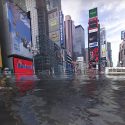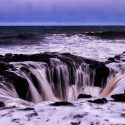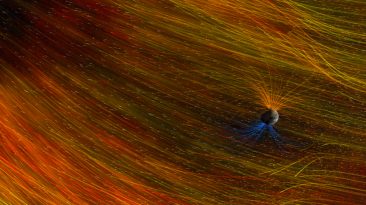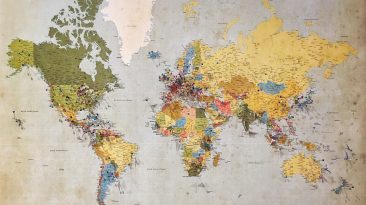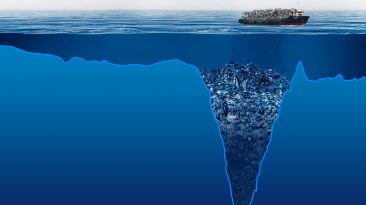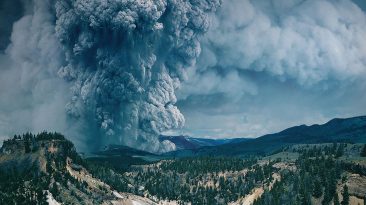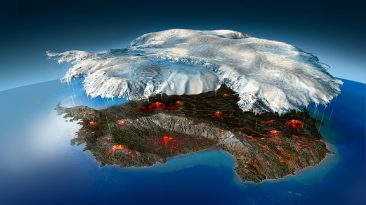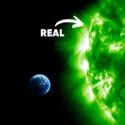Back in 1846, whaling was one of the most booming industries in the whole world. It was the fifth largest sector in the United States economy, raking in a cool $10 million.
But somewhere along the way, the whale supply started to run low, and some people began to realize that the entire thing might be a bad idea; not just for the whales, but for our planet as a whole.
How did the whale hunt accelerate climate change? What did it do to ocean ecosystems? And why were scientists worried about whale poo shortages?
If the whale hunt never happened, there’d be less carbon in our atmosphere, and our planet would be a lot healthier. If we restored whale populations to pre-hunt levels, we could remove about 160,000 tons of carbon from our atmosphere every year. That’s an amount equivalent to adding 843 hectares of forest.
But how can one species be so important to the entire planet? Looking back, it’s clear why whale hunting was such an enticing business opportunity.
Their meat could be used to feed the masses, their oil could lubricate machinery and light up a room, their intestines could produce perfume, and their cartilage was perfect for holding together products like corsets and umbrellas.
With all the money wrapped up in the industry, you can see why there would be such a backlash when it was essentially banned in 1986. Some politicians even argued that hunting whales was good for humans because without whales around to eat fish and krill, there’d be more for us to eat.
But as we got rid of the whales, the fish and krill started to die too. Whales are apex predators, which means that they’re the top of their food chain. When you begin to remove the head of a food chain, it creates something called a trophic cascade, basically a trickle-down effect that can disrupt an entire ecosystem.
Whales don’t just eat fish and krill; they also play a big part in allowing those populations to thrive. For one thing, their poop releases essential nutrients like iron and nitrogen into the surface waters, which fertilizes plant plankton, which, in turn, feeds fish and krill.
Whenever whales swim from the depths of the ocean back up to the surface, they knock plankton up to the sunny surface waters, allowing it more time to reproduce. The more plankton there are in our waters, the better things are for everyone. Not only do plankton feed lots of marine populations, they also absorb carbon dioxide from our atmosphere, taking it down to the bottom of the ocean for thousands of years when they die.
But the carbon reduction doesn’t stop there; whales also contribute directly to cleaning up the atmosphere.They store large amounts of carbon, and carry it down to the sea floor when they die; otherwise, this carbon would be released into the environment and contribute to global warming.
With all that in mind, it’s clear how vital these elegant creatures are to the planet, and how much good they could’ve been doing if we hadn’t been slashing their populations for decades. Nowadays, whale hunting is banned everywhere except for a handful of countries. Experts say that despite these efforts, the populations of most species of whale won’t even reach half of their pre-whaling numbers by 2100.
Sources
- “How many people would a single blue whale feed for a single meal” , quora.com
- “The Spectacular Rise And Fall Of U.S. Whaling: An Innovation Story”. Thompson, Derek. 2012. theatlantic. Accessed November 16 2018.
- “Why Whale Poo Matters | George Monbiot”. Monbiot, George. 2014. theguardian. Accessed November 16 2018.
- “Impact Of Whaling On The Ocean Carbon Cycle – Journalist’s Resource”. Kille, Leighton. 2014. Journalist’s Resource. Accessed November 16 2018.
- “A World Without Whales?”. 2009. huffpost. Accessed November 16 2018.
- “If We Care About Our Oceans, We Must Protect The Whales”. 2018. theglobeandmail. Accessed November 16 2018.
- “Vital Giants: Why Living Seas Need Whales”. Nicol, Steve. 2018. newscientist. Accessed November 16 2018.
- “Whales Keep Carbon Out Of The Atmosphere”. Kavya Balaraman, E&E News. 2018. scientificamerican. Accessed November 16 2018
- “Endangered Whales Won’t Reach Half Of Pre-Hunting Numbers By 2100, Study Says”. Wahlquist, Calla. 2017. theguardian. Accessed November 16 2018.


